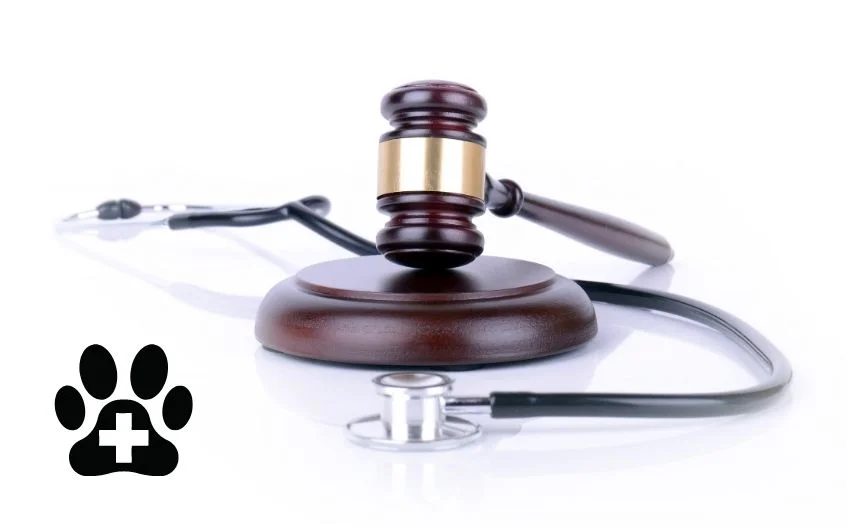If you are confused about the recent veterinary compounding laws in Maryland before practicing the veterinary compounding in Maryland, you should know that there is a Maryland veterinary board that releases the recent veterinary compounding regulations in Maryland. This Maryland veterinary medical board clears all the doubts regarding veterinary compounding basics and the latest regulations about safe and authentic veterinary compounding. You can get information about what the veterinary compounding is and what are the examples of compounded medications under the laws of Maryland board of veterinary medicine.
This Maryland veterinary board does all the licensing and registering the veterinarians, veterinary technicians; furthermore, it manages the veterinary hospitals and other veterinary control facilities by enforcing the veterinary practice act and related code of Maryland regulations.
The Maryland veterinary board also has a duty to investigate the customer complaints and to initiate the investigations doing inspections of veterinary hospitals and animal shelters. The main mission and vision of Maryland veterinary medical board is to ensure the effective licensure of veterinarians, technicians and hospitals that lie under its jurisdiction and to provide an effective discipline listing all laws and regulations to make them adopt all reasonable standards for the safe veterinary practice.
Now let’s check all the recent updates about the veterinary compounding laws and regulations by the Maryland veterinary board.
Veterinary Compounding Laws: Updates of Maryland

The Maryland veterinary board has released a complete legislation that includes the Maryland veterinary practice act and the code of Maryland regulations to set the standards for the veterinary medicine practice in Maryland. You can even have a PDF version of all the laws and regulations related to veterinary compounding and veterinary practicing guide.
These regulations are mostly adopted by the State Board of Veterinary Examiners (SBVME) to set the high quality standards for the veterinary medicine practice and compounding.
You can even consult the current regulations yourself as there are all regulations listed chapter wise that are arranged by topics like the standard of practice & code ethics, board hearings & licensing and sanitary facilities and animal facility of controlled licenses etc.
Let’s check the FAQs related to veterinary compounding in Maryland and look at the suggested answer under the guidelines by the Maryland veterinary board.
Can Veterinarians Compound Drugs?
Yes, any certified veterinarian can compound the drugs after having a detailed checkup of any beloved animal; however if he/she has not an adequate knowledge of compounding then he/may suggest the customized prescription to any authorized compounding pharmacist who can then compound those drugs for a specific animal.
Remember one thing, that whoever compounds the drug. The source of the active ingredient should be a finished FDA approved drug and it should not be a bulk drug substance. So, overall we also need to take care of federal laws as well as the Maryland state laws to compound the veterinarian compounded drugs.
Can Veterinarians Prescribe Controlled Substances in Maryland?
Yes! According to recent regulations and laws of Maryland board of veterinary medicine, if a veterinarian has a federal controlled substance registration certificate and the Maryland controlled dangerous substance registration, he/she can prescribe even the controlled substance too.
Usually a controlled substance is prohibited to be sold openly as it may include the active drugs and the several aphrodisiacs, so each state controls the sale/purchase of such substances and only allow them to sell if there is actually need of such substances for medical purposes. Therefore, legal licenses and registration is required by the veterinarians and pharmacists/compounders to prescribe or compound the controlled substances.
Is it Legal for a Vet to Charge for a Prescription?

Yes, it is completely fine if a veterinarian is willing to charge you a nominal fee for their time and check up. It is his/her right and no federal law or state laws prohibits him/her for doing so. Some veterinarians does not charge their prescription fee as they also offer you the compounding services too, so you basically just have to pay for the compounded drugs and not for the checkup and prescription but if you are willing to buy it from another pharmacy, the veterinarian is not allowed to refuse you giving the specific prescription. It would be against the laws and regulations by the Maryland veterinary board.
Conclusion
Veterinary compounding in Bethesda, Maryland is being continuously improved by the Maryland veterinary board, board of veterinary medical examiners, Food and Drug Administration (FDA), Federal Food Drug & Cosmetic Act (FDCA) and the Maryland Department of Agriculture.
The licensing and monitoring of the veterinary compounding pharmacies are monitored by Maryland veterinary board and the fun part is that they are actually appealing the consumers and veterinary practitioners to file the complaints if there seems to be unauthorized or illegal activity is noticed by any of them. Consumers and veterinarians can check the FAQs section to clear any doubt regarding veterinary compounding and licensing and if some more information is required, they can even contact the Maryland veterinary board on the suggested numbers for licensing questions and the complaint questions as well.


